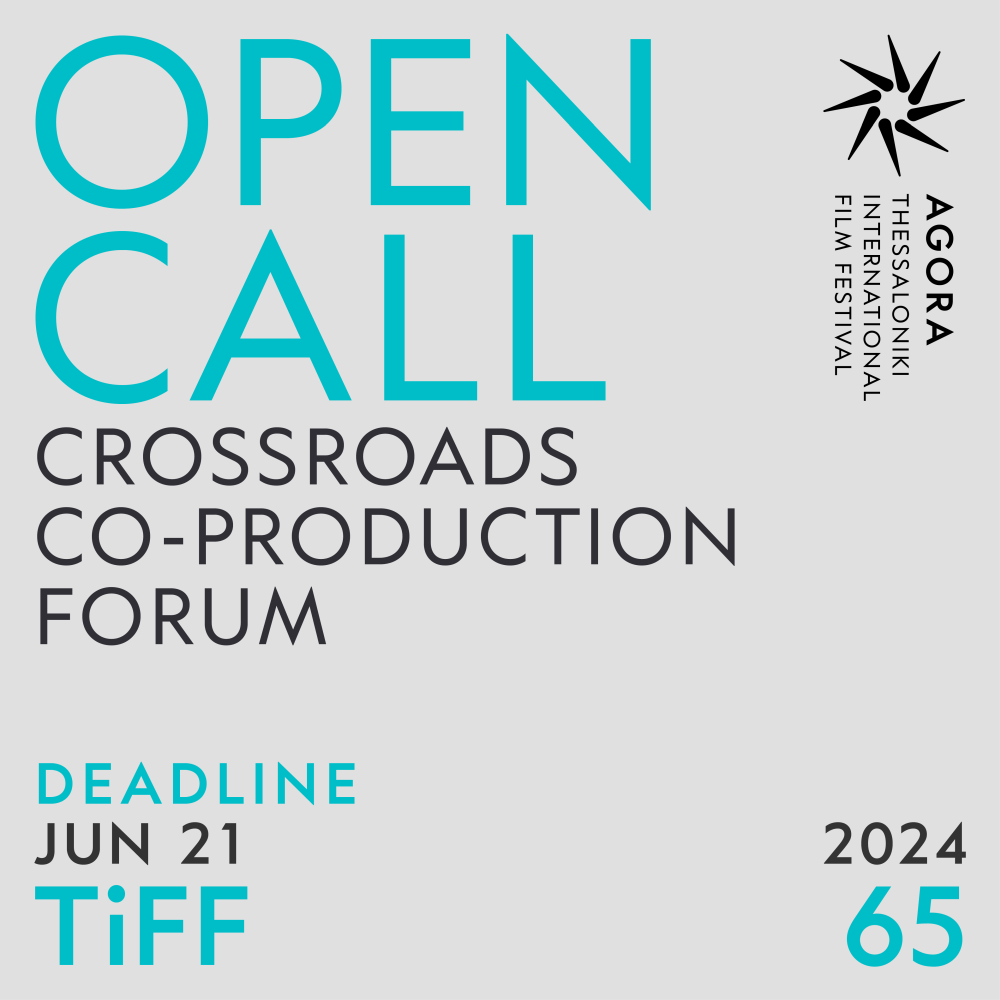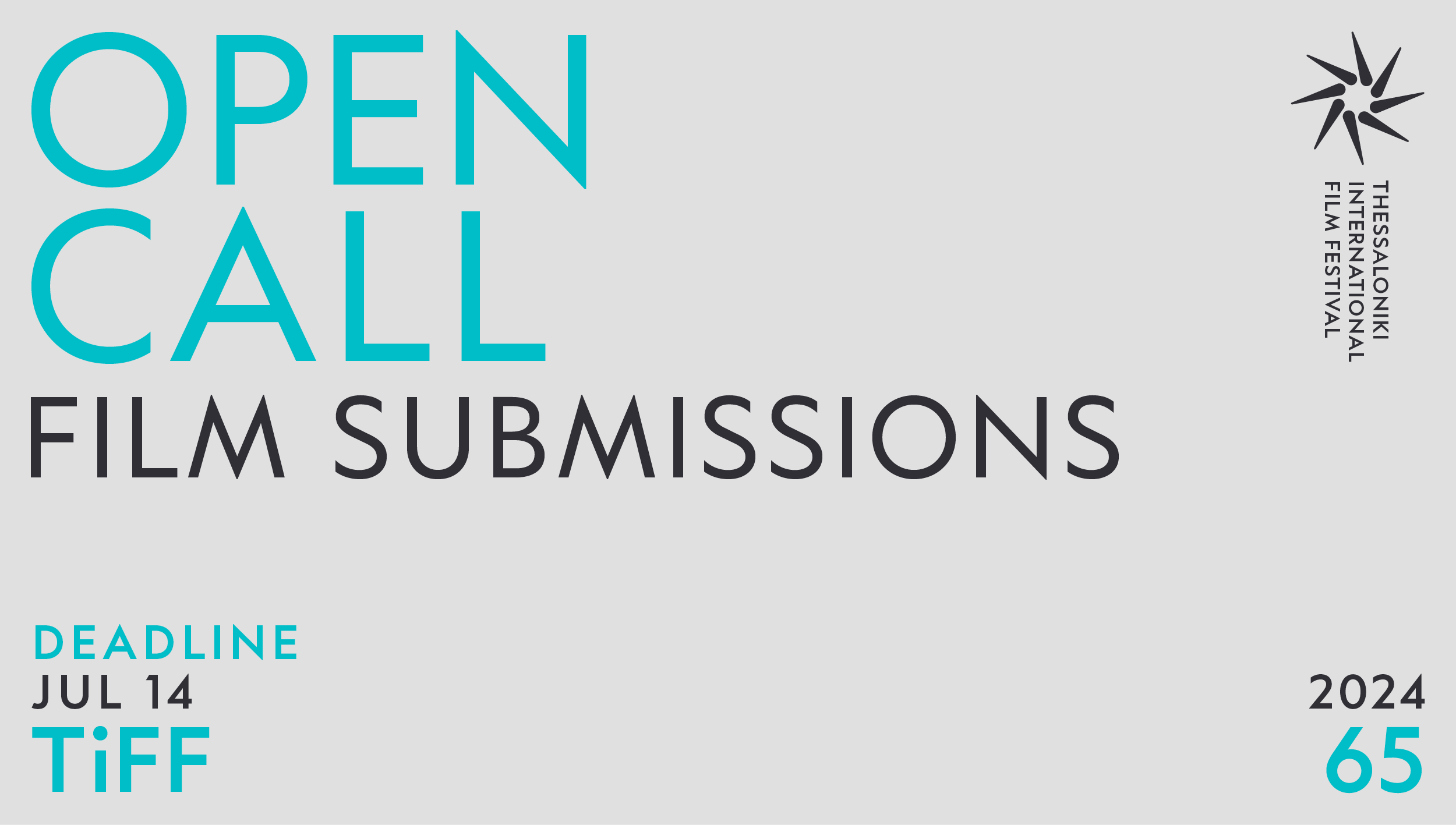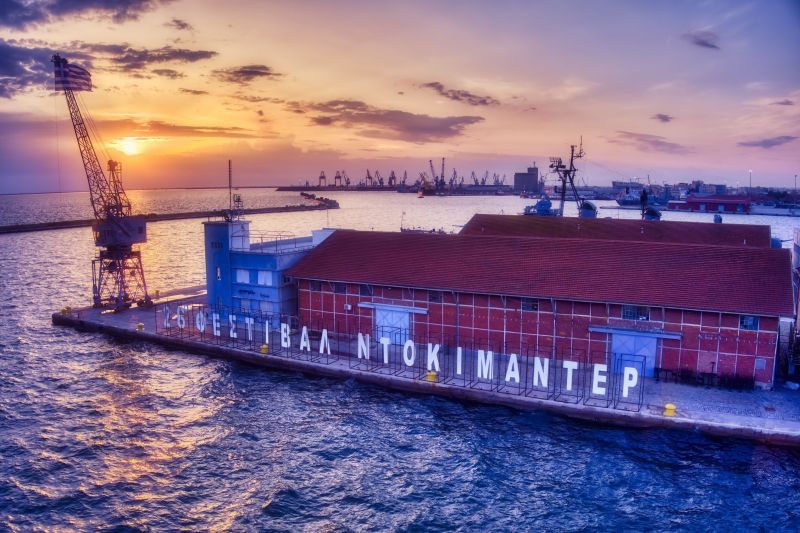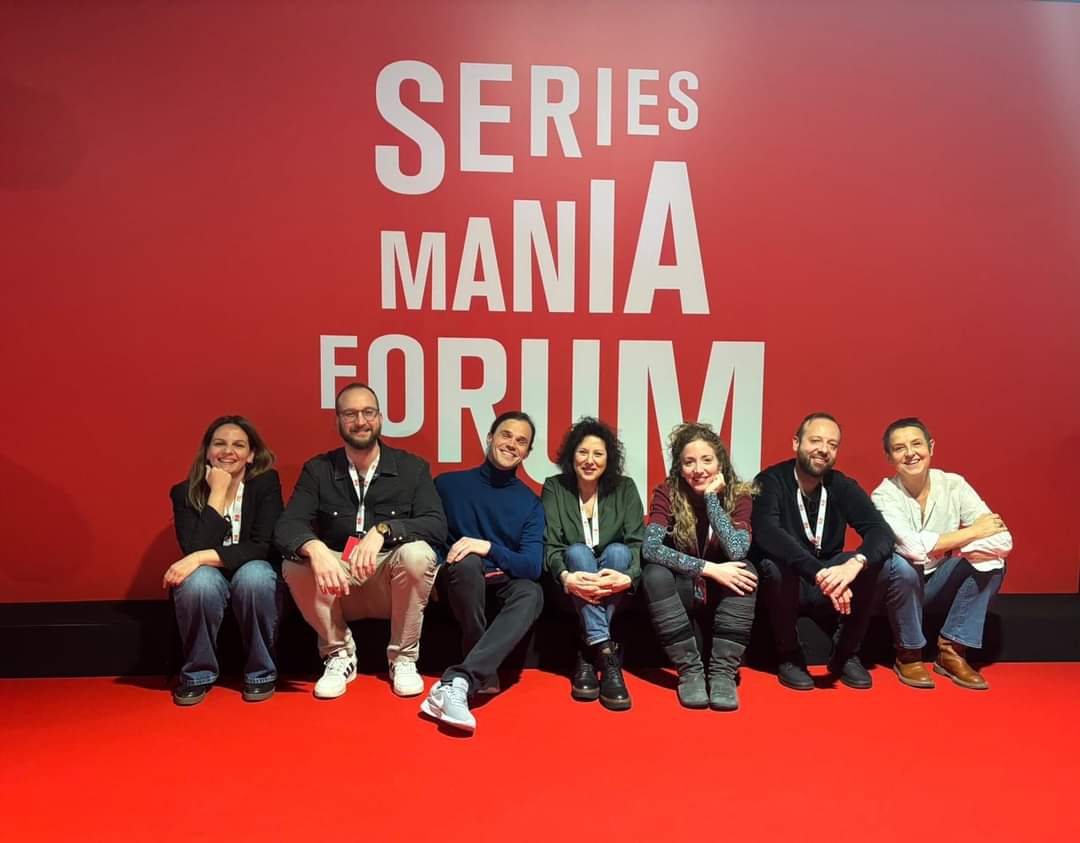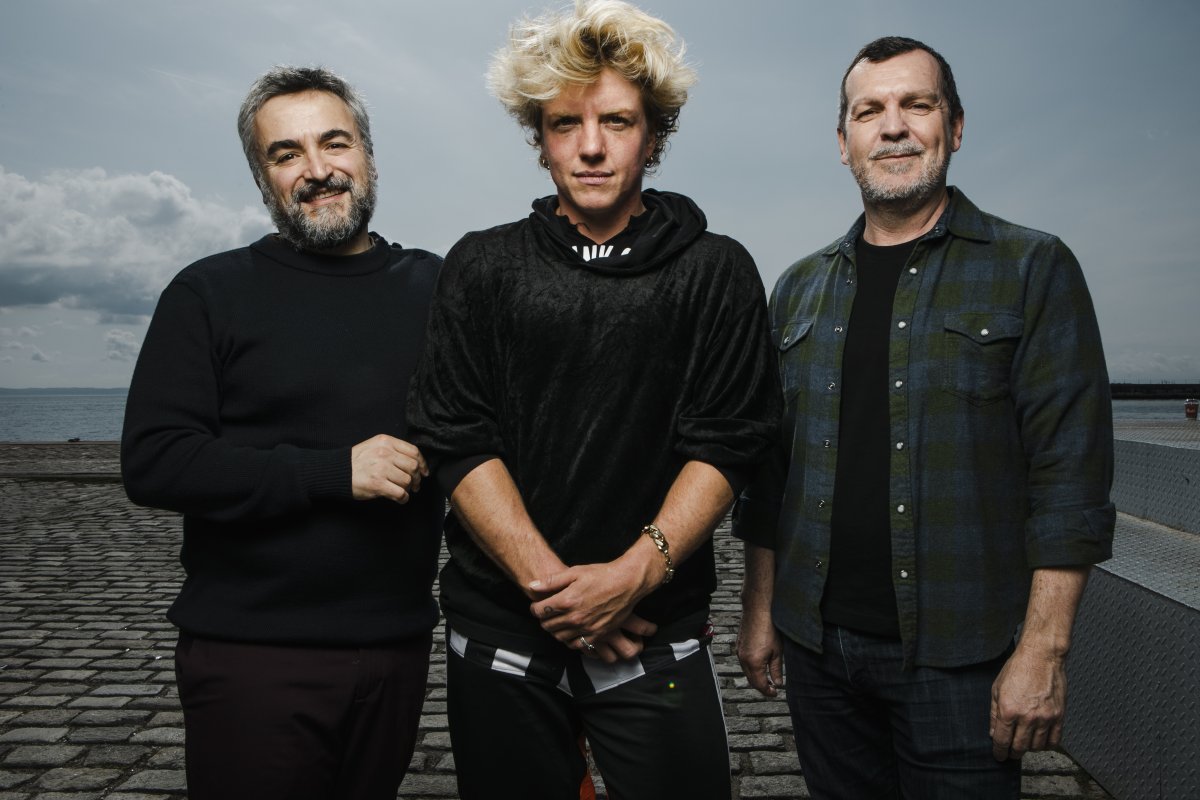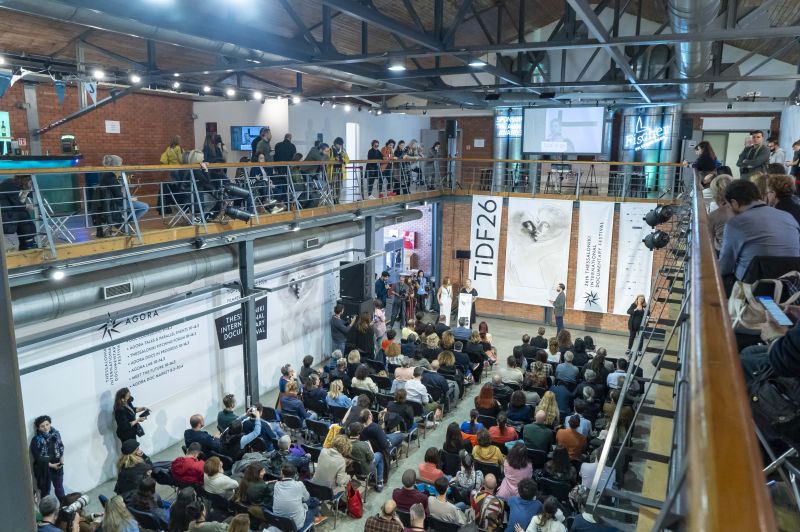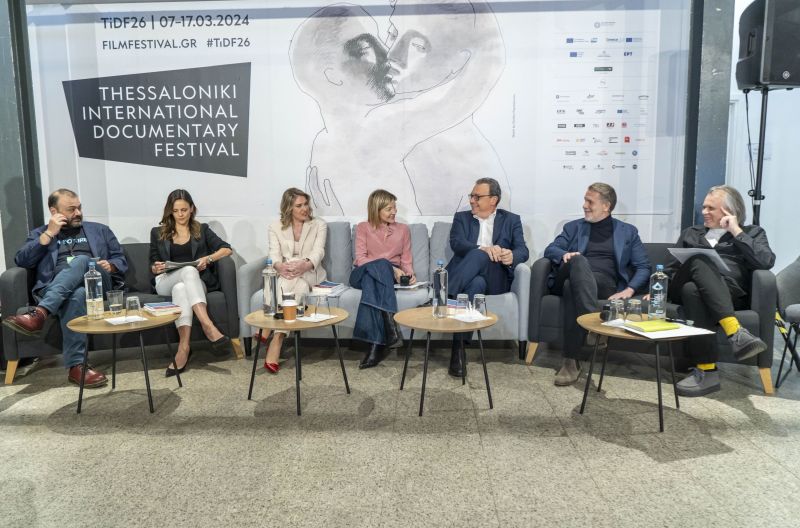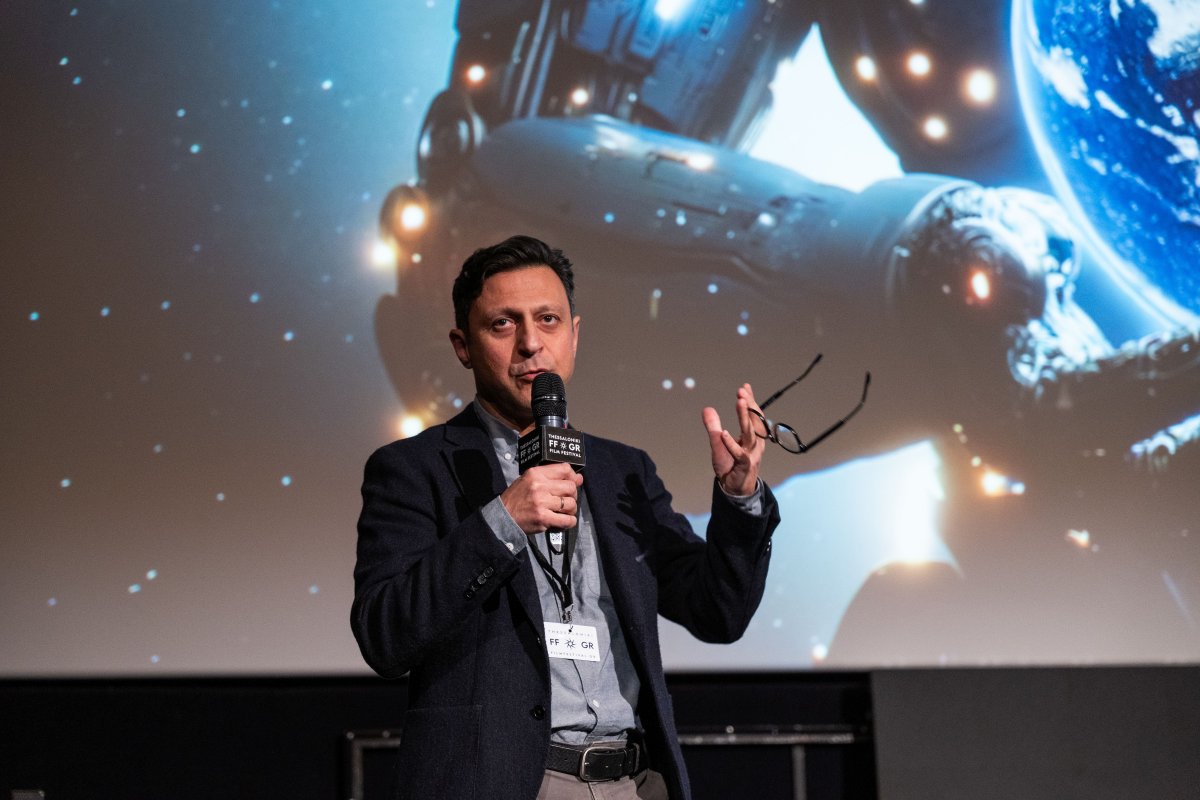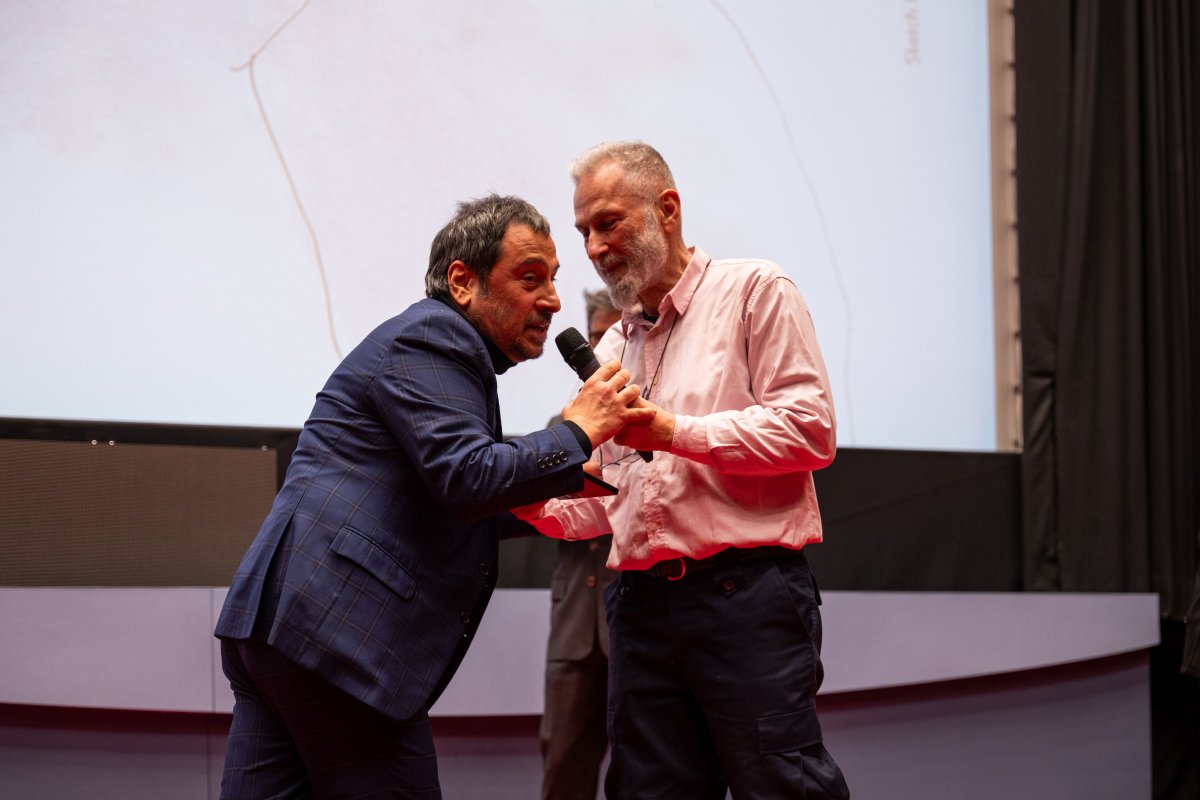“GREEN DIALOGUES ΙΙ”
Open discussion “THE ROAD TO COPENHAGEN“
Climate change was the focal point of the open discussion “The road to Copenhagen”, which opened the series of discussions of the “Green Dialogues ΙΙ” initiative on Saturday, November 14, at Tonia Marketaki theater, in the framework of TIFF. The initiative is organized in collaboration with the Danish Embassy of Greece and with the support of SKAI TV, the WWF and Greenpeace. The panel consisted of Danish ambassador Tom Norring, assistant secretary of Foreign Affairs Spiros Kouvelis, assistant secretary of Citizen Protection Spiros Vougias, the director of The cove Louis Psyhogios and the representatives of Greenpeace and WWF Takis Grigoriou and Ahilleas Pletharas respectively.
The first “Green Dialogues” initiative took place last year, in the framework of the 49th TIFF, aiming at increasing social awareness in environmental issues and ecology and becoming an example of ecological action. This year’s initiative is further strengthening the debate on the environment. Addressing the open discussion, TIFF’s director Despina Mouzaki pointed out that “It is now imperative to take action. Climate change is not an issue that concerns only experts and policy makers, it is a problem that affects every single one of us. This clear message is ideally conveyed by cinema”. Mrs Mouzaki also referred to the other initiatives scheduled in the framework of this year’s “Green Dialogues”, which coincide with TIFF’s 50th anniversary. These initiatives include the planting of trees at Thessaloniki’s Seih Sou forest and the effort made by TIFF to become “greener”, not only in terms of the environmentally themed films and the spots projected prior to screenings, but also in terms of promoting the recycling of al printed materials, car pooling, etc. “The cinema demonstrates that we deserve a green future and that this hope is not a utopia. The cinema also makes it clear, however, that this aspiration cannot be achieved by wishful thinking and empty promises. Action is the only answer to those who prefer to turn a blind eye on the problem. Taking action is not only our duty, but a matter of honor”. SKAI journalist Katerina Christofilidou coordinated the discussion that followed, commenting that the power of art is tremendous and can help in making us all realize the urgency of the problem of climate change.
Ambassador Norring was optimistic about the outcome of the upcoming Copenhagen Convention in December: “It is not only an opportunity, but an urgent need to take important decisions. We have made progress in raising public awareness, but this must be followed by political will. I hope that even at the eleventh hour we will be able to reach an agreement – otherwise the consequences will be grave”. Addressing the question of whether the international community has the luxury to spend on the environment in times of economic crisis, ambassador Norring pointed out that his own country adopted a greener development model in the middle of the oil crisis of the 1970s.
Assistant secretary of Foreign Affairs for energy diplomacy Spiros Kouvelis commented that the festival’s initiative to open this dialogue on such a crucial issue as climate change was very important, also pointing out that Greece has set an aim to meet 20% of its energy needs by renewable energy sources by 2020, a goal more ambitious compared to the 18% benchmark stipulated by the EU. Assistant Secretary Vougias stressed the important role of local societies and local government: “Thessaloniki should redefine its identity as a green city, respecting hikers, bolstering the use of means of mass transportation, creating tram-car and sea transportation networks, making bioclimatic buildings and taking initiatives for the improving the quality of water and the atmosphere”.
WWF representative Ahilleas Pletharas said that despite the general gloom, “there is still time and the necessary technical means to reverse the situation. Greece can be fully independent of fossil fuels by 2050, provided she takes advantage of wind and solar energy, geothermics, and - why not - wave energy”.
Greenpeace representative Takis Grigoriou noted: “It is crucial that by 2020 industrial countries have reduced by at least 40% their emissions of greenhouse gasses. There is also a need for the massive development of renewables and for taking energy conservation measures, excluding at the same time the use of nuclear energy: This is the desirable outcome of Copenhagen, otherwise it will be very difficult to avoid the consequences of climate change. The direness of climate change demands indeed drastic but nevertheless feasible measures”.
According to filmmaker Louis Psyhogios, director of The Cove, a film screened in the framework of “Green Dialogues II”, “cinema is a weapon of mass hope“. His movie, labeled as an “ecology thriller”, deals with the mass extinction of dolphins in Japan and man’s overwhelming power over the environment. «It is not only whales and dolphins. The bigger issue is to redefine our relationship with nature», pointed out the filmmaker, adding: “Today, we only think of tomorrow and not of the next generation that will follow us. We cannot possibly allow ourselves to admit to them that ‘there was a way to save the planet, but it was too costly to follow’. For change to begin, we don’t need 6 billion people – even a few impassioned individuals would suffice”.
Following the speeches, the audience dominated the discussion, posing many questions on a wide area of issues, ranging from immigration caused by climate change to issues of environmental awareness regarding the city of Thessaloniki. Taking the floor, Aristotle University Professor Giannis Milopoulos underlined that we have to respond to the new facts on the ground caused by climate change, abandoning, for example, water and energy inefficient crops. Aristotle university professor Demetris Dermatas noted that “we should not talk only of disaster. We should offer a glimmer of hope that will inspire action”. Filmmaker Loukia Rikaki, who was also present in the discussion, referred to the Rhodes Film Festival, noting that cinema should convey messages of hope, by showcasing feasible solutions.
“Time is running out” was the main message stressed by the representatives of Greenpeace and WWF, closing the discussion. Assistant secretary Kouvelis underlined: “Greece has missed more than its fair share of trains in her history. She cannot afford to miss the train of green development. The public should remind us that failure is not an option in Copenhagen”. “If what daunts us now is the economic costs of the environment, we should realize that these costs will be much higher in the future. If we miss the opportunity of Copenhagen, we will all be on the losing side”, summarized ambassador Norring. “Cinema is our last weapon. Not all people are isolated, sitting in front of a computer. They go to the movies and they are sources of energy that must be channeled in order to have concrete results”, was the closing remark of Louis Psyhogios, who thus aptly captured the philosophy of TIFF’s “Green Dialogues ΙΙ”.



